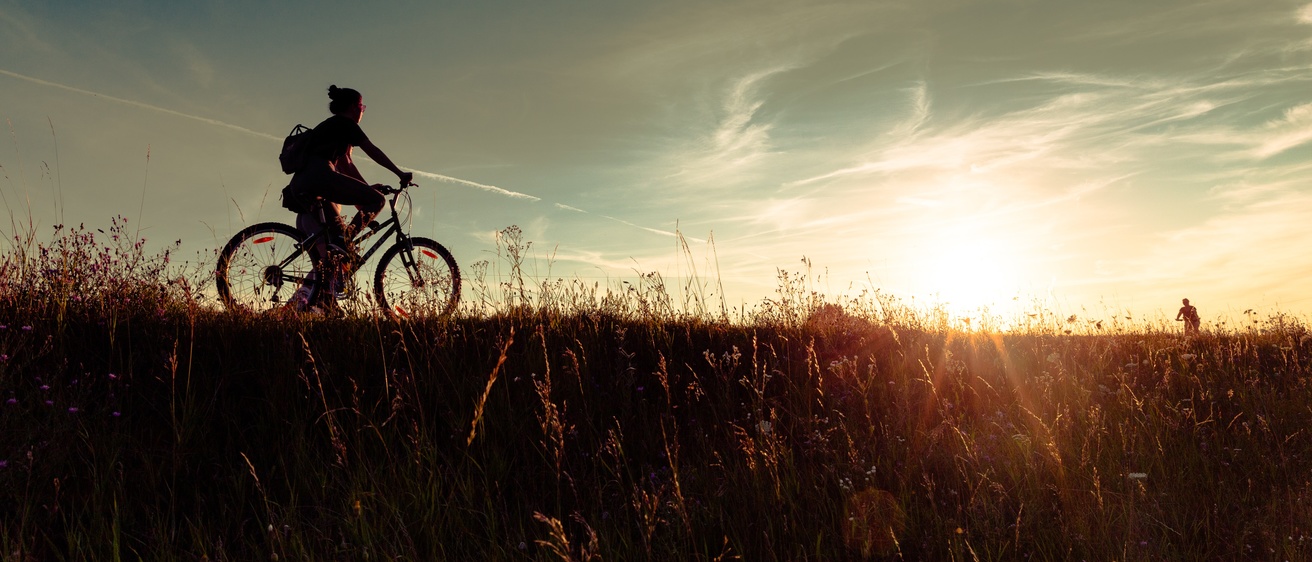As a health coach, I have great faith in people’s ability to change, learn, adapt, and overcome. Throughout the pandemic, I have had the privilege of hearing many people’s stories, stories of stretched reserves and of doing more work than they may have ever thought was possible. I am in awe of how University of Iowa faculty and staff have stepped up and persevered. I also know we need to recuperate after the accumulated stress of the last two years, even as we forge ahead with ongoing life challenges.
Times of transition and adjustment can also be times to rethink and reinvent. Positive change starts with valuing our own selves and wanting something better. Positive goals help us shift our attention back to ourselves. Now is a great time to contemplate, imagine, and plan what kind of future you’d like to see.
Contemplate how you might reincorporate something that you used to enjoy and have set aside. How can you shift some attention away from work demands and other stressors, and ask yourself what you really need or want right now? Even while dealing with the stress of the COVID-19 pandemic, we all need time for recovery, fun, and relaxation. Think back on hobbies, activities, or something that brought you joy in the past. Do you still do those things? Can you remember when you had freedom in your schedule to do whatever you wanted? What did you enjoy doing with your time? Perhaps you recall riding a bike and enjoying a sense of freedom, or experimenting in the kitchen, playing games, singing, or dancing to music you love.
Let go of judgment or the need to be perfect. Ready to give up a less than ideal behavior or coping skill you picked up to get through the pandemic? Perhaps you feel a call to learn something entirely unfamiliar—making new friends, learning, experimenting, or developing a new skill. In my own experience as an ovarian cancer survivor, going through challenges helped me find a sense of confidence to try new things I'd been curious about before. Adopting a mindset that I am someone who wants to learn has helped me discover activities I love and to aim to enjoy my life as best I can. I am a passionate paddle boarder and have become devoted to regular yoga practice. My attempt to learn to play steel pan drums may not be what you call a “great success,” but I am grateful for the opportunity to challenge my brain, meet new people, and have fun. All of these activities were challenging to me and I had to be extremely kind and patient with myself. I learned best when I was able to let go of judgment or the need to be perfect.
Positive goals start with small steps. Small steps aren’t small, they are powerful. They require hope, courage, ambition, and aspiration. Celebrate each small step that brings you closer to your goal. Adopt a mindset that “everything counts, everything helps.” Avoid negative self-talk. Encourage yourself just as you would speak to a friend—with kindness, patience, and compassion.
Visualize your future self having accomplished your goal or staying on track. Take a moment to contemplate what will be better as a result of your actions. Imagine how you might feel if things are going well. How will you feel at the end of the week if you meet a weekly goal? Content? Relieved? Excited? How will your future self feel after staying on track for a month? Accomplished? Proud? Tap into those feel-good emotions and use that energy to propel you forward.
Allow yourself to make mistakes. Aim for progress, not perfection. When things go wrong (and they inevitably will), remind yourself, “This is how we learn.” Our mistakes or challenges are useful, especially if we choose to view them from that lens. Part of my job as a health coach is to remind my clients that it’s completely normal to start again or decide to do things differently. You may try a strategy, such as working on your goal in the morning, and decide that it’s not the best fit for you after all. That is OK. In fact, that is useful information, right?
Avoid getting down on yourself when things don’t go well, especially at first. The way we react to an obstacle can be more important than the obstacle itself. Ask yourself what you can learn from it and how you might adjust your strategies to help things go better next time. The most important thing is to keep moving forward. Take a mindset of curiosity, allow for flexibility, and give yourself credit for every step. Big changes start with tiny choices.
Who benefits? We all do! Finally, making time for you is not selfish. If you spend some of your time and energy making yourself healthier or happier, who benefits? Everyone around you! If we take steps to get our needs met in healthy ways and make more purposeful choices for ourselves, we will have more energy for other things, including making the world a better place for all of us.
